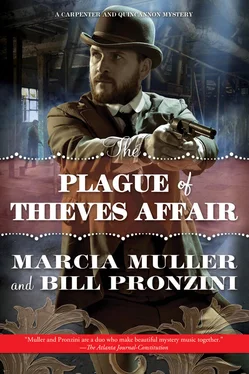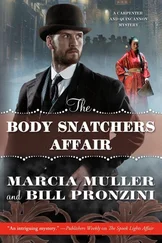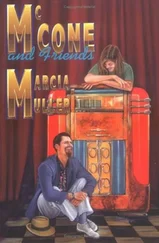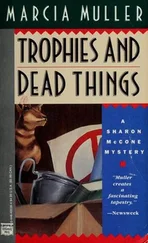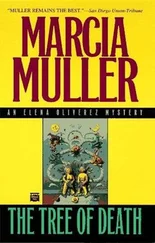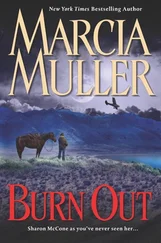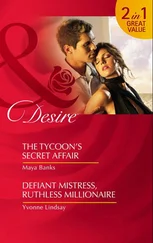Corby resided in a boardinghouse in the Western Addition, a fact that Quincannon had learned by a further search of the bookkeeper’s office: the addresses of all of Golden State’s employees were kept on file there. He hadn’t uncovered anything else of interest, but that was hardly surprising; any additional incriminating evidence against Corby, if such existed, would be found in his private quarters.
No, it wouldn’t, blast the luck. He was also denied the pleasure of putting the arm on Corby immediately as well. The man was not home, and when Quincannon took the opportunity to pick the lock and search the premises, as he had Lansing’s that morning, there was nothing damning for him to find. Unlike Lansing, Corby evidently kept his ill-gotten gains elsewhere; there were no loose floorboards or other hiding places here. The three rooms were sparsely furnished and kept neat as a pin, but utterly lacking in personal items of any value. The only wall adornment was an illustrated calendar from a supplier of chickens and eggs in Los Alegres, an agricultural and ranching community in the North Bay. Even the clothing in the bedroom wardrobe was mostly old and threadbare.
The Spartan atmosphere explained, perhaps, why Corby had succumbed to the temptation to turn crook and slayer. His bookkeeper’s salary could not have been much, and he may well have yearned for the finer things life had to offer. But if he had been paid some or all of his blood money, he’d hoarded it just as Lansing had, though much more carefully. Had it been anywhere in these rooms, Quincannon would have ferreted it out.
Across the street from the boardinghouse was a bakery and coffee bar. He claimed a table at the window overlooking the street. The night was beset with coils of fog, and the interior warmth caused the glass to mist up a bit, but he could see the boardinghouse stoop and gaslit entrance well enough. He ordered coffee and a plate of sweet rolls, and settled down for what he hoped would not be a long wait.
It was, however. Long and ultimately futile.
Quincannon sat filling and distressing his bladder with too much weakly brewed coffee until the shop closed at ten o’clock. The only individual who entered the boardinghouse was a gent far too tall and corpulent to be Elias Corby.
Where the devil was he? It was unlikely that he’d taken it on the lammas; as far as he knew, he was under no suspicion for either Ackermann’s murder or Lansing’s bogus suicide. It was possible he’d been paid enough for his role in the theft of the steam beer formula to head for parts unknown and the establishment of a new life. But it would have been a foolish act to disappear suddenly, with no word to anyone, thereby calling attention to himself — and Corby, unlike Lansing, was no fool. He would surely have followed the more prudent course of remaining at his job for the present.
Unless he’d been unable to. Unless something had happened to him, too — that payment for his evil deeds had not been money but hot lead or cold steel. Would Cyrus Drinkwater go so far as to order Corby’s death? He might, if the bookkeeper had been witless enough to demand more money for his deeds; a scoundrel such as Drinkwater would not take kindly to threats and an attempt at blackmail. On the other hand, he was a businessman whose shady enterprises depended on payoffs; so far as anyone knew, he had never resorted to violence. Or ever would, in all probability, except as a last desperate recourse.
Quincannon debated the wisdom of lingering in the neighborhood a while longer, but there was no telling when Corby would decide to return; it might be the wee hours if he was out spending some of his ill-gotten gains. Besides which, it was a cold night and Quincannon was tired; the prospect of shivering in doorways for even a short while held no appeal. Yaffling Corby could wait until tomorrow.
Quincannon had lived in the same bachelor digs on Leavenworth Street since his arrival in the city a dozen years before, when as an agent for the Secret Service he’d been transferred to the San Francisco field office in the U.S. Mint. He’d been a hard-drinking man in those early days, and something of a hell-raiser; the large flat had been the scene of several small but raucous parties, and more than a handful of willing young wenches had shared his bed. Not that he’d been a celibate monk since taking the pledge, leaving the Service, and establishing his partnership with Sabina. On the contrary. His appetites were as lusty as ever when it came to pleasures of the flesh, or had been until the past eighteen months or so. In that period of time, only one young lady had entered the flat in the evening and not left again until morning.
Sabina was the cause of his waning interest in casual affairs, of course. All other women seemed to pale by comparison, even those whom some men — men who valued beauty above all else — might consider more attractive. It had taken him some time to admit to himself just how strong his feelings for her were. In the beginning of their relationship, seduction had been his primary goal; but as his respect and affection for her grew, lust had evolved into passion of a much more virtuous sort. He still wasn’t sure it was that nebulous emotion called love. How could he be, never having been in love before? But it must be something akin to it, for he’d never felt this way about any woman before.
Since realizing and accepting this, he’d tried over and over to convince Sabina that his intentions were gentlemanly, even honorable. Her constant refusal of his attempts at social interaction led to the obvious conclusion that she simply didn’t care for him in the same way he cared for her, which saddened as well as frustrated him. But then had come the subtle change in her attitude, the acceptance of invitations to dinner, plays, concerts, the softened smiles and speculative looks. He couldn’t help wondering what had brought it on. Nothing he’d said or done. A simple matter of almost daily proximity building an affection that reciprocated his own? Something to do with her failed (happily failed) relationship with that society coxcomb, Carson Montgomery, last fall? Impossible to guess what went on inside a woman’s mind. Not that it really mattered why she had altered her stance, only that his ardor for her might yet be requited after all...
These thoughts were on Quincannon’s mind as he let himself into the flat. He lit the gas in the parlor and the bedroom to chase away the evening chill. Usually, these rooms were his sanctuary and he minded not at all being alone in them, but tonight they had a different effect on him, their emptiness making him feel oddly lonely. In the five years of his partnership with Sabina, she had never once set foot in here. What would she think of the place if she ever did, with its collection of Civil War artifacts inherited from his father, the shelves of books of poetry and temperance tracts he collected, the massive rolltop desk with its overflowing clutter of papers, pipes, and tobacco canisters, the marble-topped buffet and gold-framed mirror decorated with paintings of nude nymphs? Approve? Disapprove? Lord, how he yearned to find out!
He selected one of the tracts and took it to bed with him. It was one he’d read often before, not because he subscribed to the precepts of the temperance movement — he was not against alcohol per se, only his own use of it — but because it put him to sleep more quickly than any of the others. Written and printed by a flaming zealot named Ebenezer Talbot, one of the founders of the True Christian Temperance Society, it bore the title “A Bibulous Evening with Satan” and was luridly and ungrammatically inflammatory in its denunciation of the evils of drink. He was already half asleep by the time he reached the end of page 2.
Читать дальше
